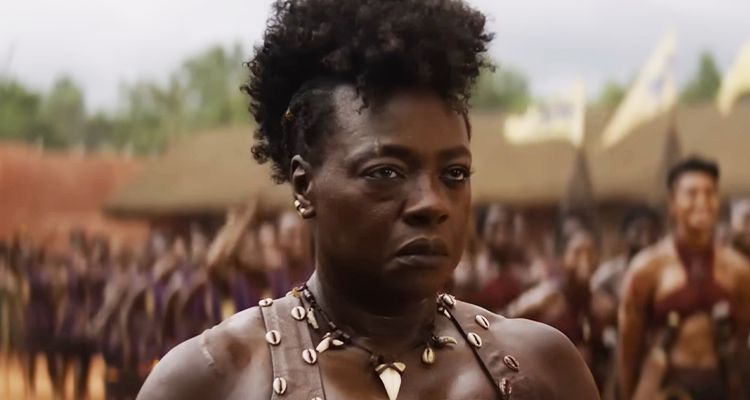At first glance, The Woman King is a groundbreaking film. Directed by Gina Prince-Bythewood, it consists of a predominantly black female cast and almost entirely female crew, The Woman King is a historical action drama that tells the story of Agojie, an all-female army protecting the West African kingdom of Dahomey. The female soldiers renounce marriage and motherhood to entirely devote their lives to honing their martial arts skills and defending the kingdom.
The film appropriates a cinematic genre associated with masculinity and contributes to the recognition and visibility of black female characters on-screen and women off-screen.

Viola Davis, cast as General Nanisca training the next generation of fighters, said, “It’s our story. There is no white saviour in the movie. There’s none. We save ourselves.” Indeed, the black female characters do not appear here as well-worn motifs, and white people are depicted as the perpetrators. Interestingly, the U.S. far-right decried the film as an abomination where black women murder white men. This indignation is a positive aspect of The Woman King that reminiscences Quentin Tarantino’s reversal of history in Inglorious Basterds (2009), where Jews murder Nazis.
The film, indeed, was inspired by historical events. The power structures in Dahomey kingdom, today’s Benin, were much more gender-balanced than in Europe. Explaining for The Guardian, Professor Leonard Wantchekon, who was born and raised in Benin and served as historical adviser on the film, says: “What is very unique is social norms in Dahomey were very gender inclusive. Girls played with boys and took part in any activity that boys are involved in, which is farming and trading, cultural activities. There had always been a strong sense of equitable gender norms and representation of women in government.”

In my article on the cinematic representation of the 1929 Igbo Women War, I wrote about how progressive, compared to Europe, the gender roles were in Africa. In this context, The Woman King is an important contribution to spreading awareness of how the colonisation of Africa did not bring the salvation of forward-thinking to the content.
In addition to tackling complex subjects such as race and gender, The Woman King is also great entertainment: fast-paced editing, well-crafted protagonists, and superbly-built tension. There is, however, something missing, and the film feels like nothing more but an enjoyable action flick that we will forget shortly after leaving the cinema.

The Woman King proves that more than this focus on visibility in terms of representation is needed. It also matters how and in what context this representation is effectuated. The film divided the black community, with some viewers praising the film for telling stories about characters that don’t usually appear on the screen (black female warriors). Others boycotted the film for falsely portraying the real-life military unit of Agoji.
The Dahomey kingdom, today’s Benin, is not as innocent regarding the slave trade as the film portrays it, placing it against the malicious Oyo kingdom that fights to maintain the trade. The involvement of King Guézo (1818-1859) of Dahomey in the slave trade was much greater than the film suggests and did not end until 1866.
Defending The Woman King’s falsification of history, Julius Tennon, who produced the movie and is married to Davis, explained: “It’s history, but we have to take license. We have to entertain people.“I think, however, the necessity to entertain people does not have to occur at the cost of the ethical depiction of history relatively unknown in the global North.
In conclusion, The Woman Kind is an important film, and its box-office (here we need to mention Black Panther certainly blazed trails for The Woman King) success proves that the audience is ready to watch stories featuring a fairer representation of black female actors. Now, there is a time to extend this representation from plain visibility to complexity.


Comments
One response to “‘The Woman King’ (2022) Review: Divisive Action Flick”
I love reading through a post that will make men and women think. Also, thank you for allowing for me to comment!